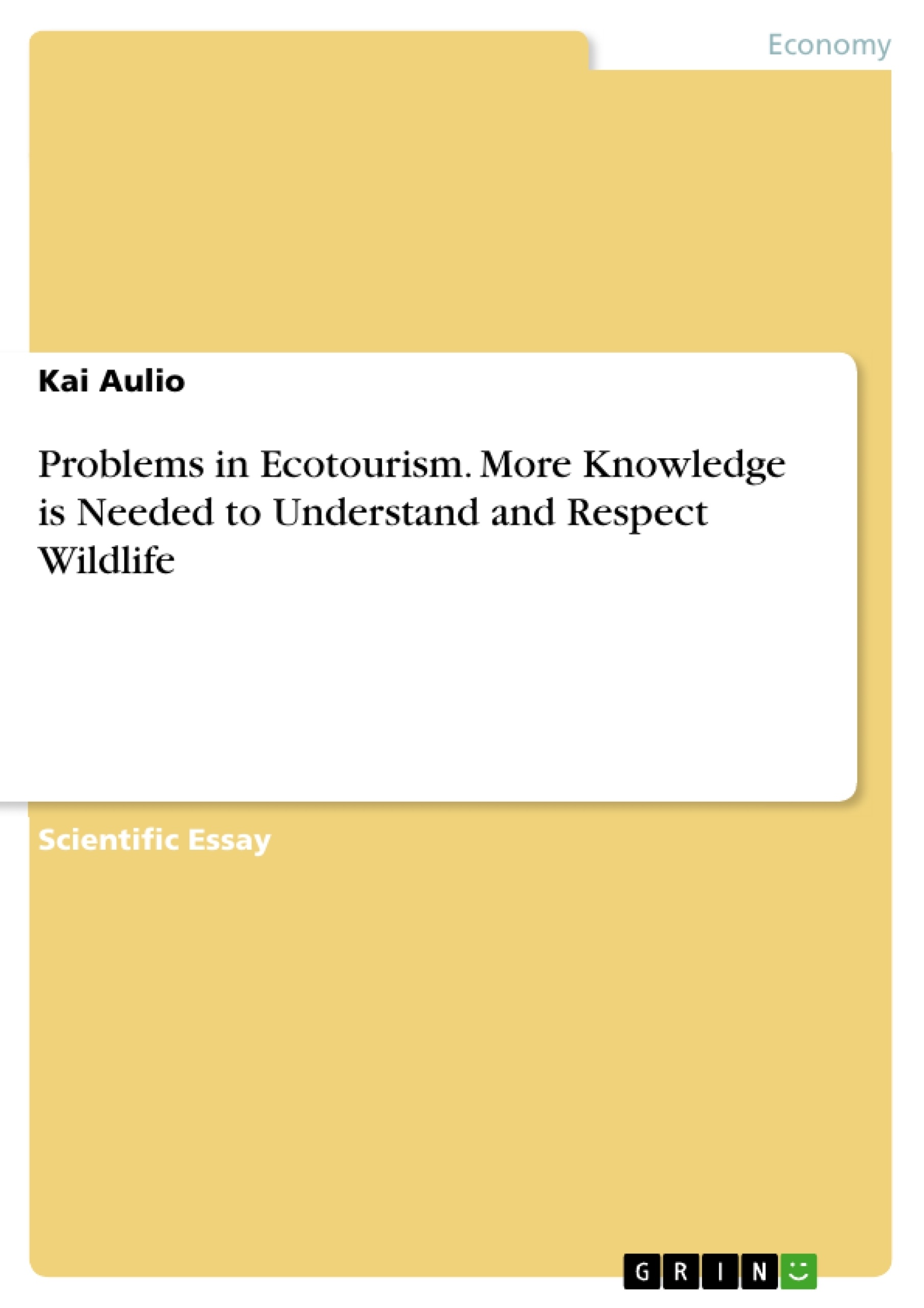Non-invasive utilization of wildlife is a major incentive for international tourism, but the increase in extraction of natural resources should show more respect to animal rights and welfare. In many destinations, a lion’s share of travel decisions is based on the possibility to see wild animals. Problems in erosion and pollution of environment are better understood than the relationships between visiting tourists and the local wildlife. United Nations declared 2017 “The International Year of Sustainable Tourism for Development”, and the theme of annual World Environment Day (5 June) was dedicated to sustainable wildlife experiences by the theme “Connecting People to Nature”.
In spite of unanimously accepted emphasis of respect of nature and decades-long education and studies, unpleasant fact is that there are far too many operations going on in so called ecotourism that do not respect nature or animal rights. The preset outlook presents an excerpt from recent studies and news items regarding the close relationships between international tourism industry and managing and conserving nature – as well as problems in the relationship – in the Year of Sustainable Tourism.
The present overview briefly describes a few conflicts – and also successful examples – between wildlife and wildlife tourism, published recently, mainly in 2016 and 2017.
Table of Contents
- Introduction
- 2017 declared The Year of Sustainable Tourism
- Several aspects of sustainability
- Limits of Nature
- Information and education are keys in reaching sustainability
- People want to see animals – Do the animals want to see people
- Swimming with dolphins often leads to dangerous habituation
- Animals are individuals - with individual needs and fears
- The Last Change Tourism
- The visitor is urged to respect the wildlife.....
- Nature Tourism: Billion dollar/euro business
- Mutual interests in nature's and people's economies...
- Poaching: Huge losses for wildlife and national economies
- Nature tourism can open doors for criminal activities
- World Heritage seriously threatened by criminals
- Respect to animal rights is the key in Responsible Tourism
- References...
Objectives and Key Themes
This text aims to provide an overview of the current state of ecotourism and its impact on wildlife. The author discusses the importance of respecting animal rights and welfare in the context of increasing tourism, particularly in the "Year of Sustainable Tourism" (2017).
- The importance of sustainability in the tourism industry.
- The impact of tourism on wildlife and natural habitats.
- The need for responsible tourism practices that respect animal rights and welfare.
- The role of education and information in promoting sustainable tourism.
- The potential conflicts and challenges in managing wildlife tourism.
Chapter Summaries
The text begins by establishing the significance of tourism for global economies and its steady growth. It highlights the importance of sustainability in all sectors of tourism, particularly in the context of ecotourism. The author emphasizes the need for respecting the intrinsic values of nature and ensuring the welfare of wildlife.
The text then delves into the concept of "Sustainable Tourism" and the need to change behaviors both within the tourism industry and among individual travelers. It underscores the importance of respecting natural values and cultural traditions to achieve sustainable tourism where all parties benefit.
The text continues to explore the specific challenges and opportunities within the realm of ecotourism, highlighting the increasing demand for thematic tourism experiences, including wildlife viewing. It acknowledges the need to balance the desire for wildlife encounters with the imperative to protect natural habitats and the well-being of animals.
Keywords
This text focuses on the intersection of tourism, sustainability, wildlife, and animal rights. Key themes include responsible tourism, wildlife tourism, sustainable development goals, wildlife conservation, ecotourism practices, and the ethical considerations surrounding the relationship between humans and animals in a tourism context.
- Citar trabajo
- PhD Kai Aulio (Autor), 2017, Problems in Ecotourism. More Knowledge is Needed to Understand and Respect Wildlife, Múnich, GRIN Verlag, https://www.grin.com/document/370448




